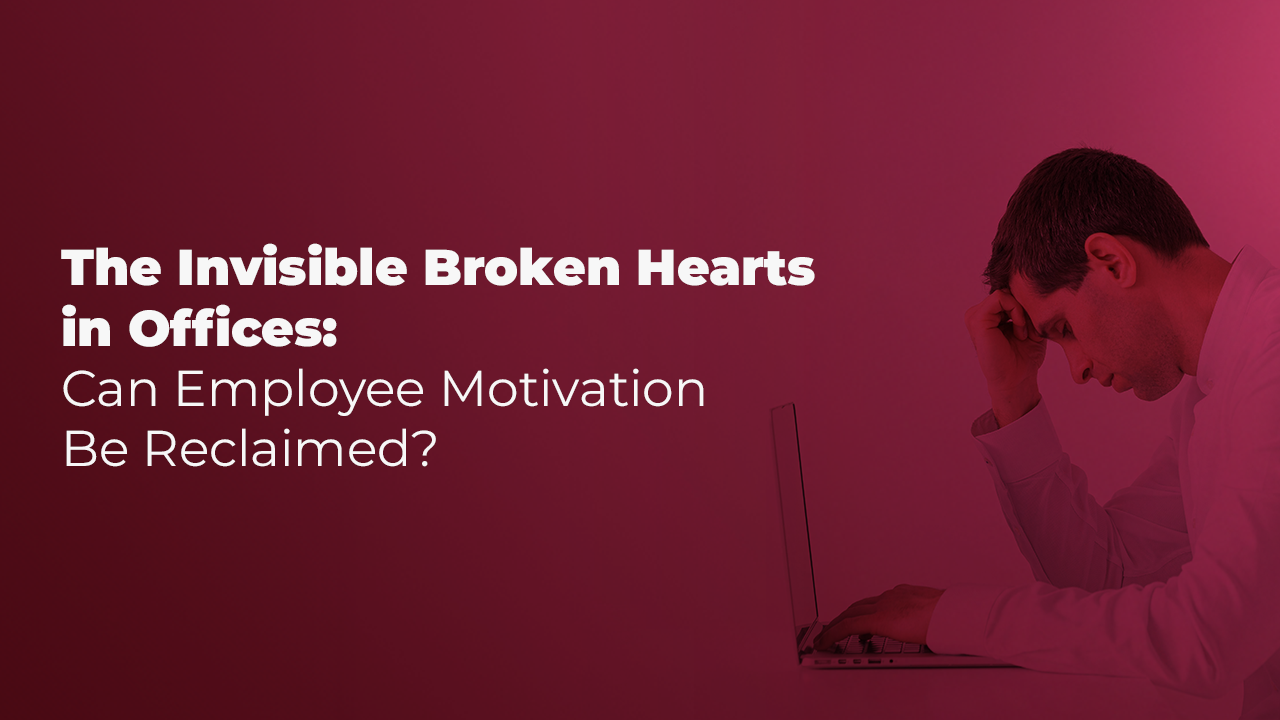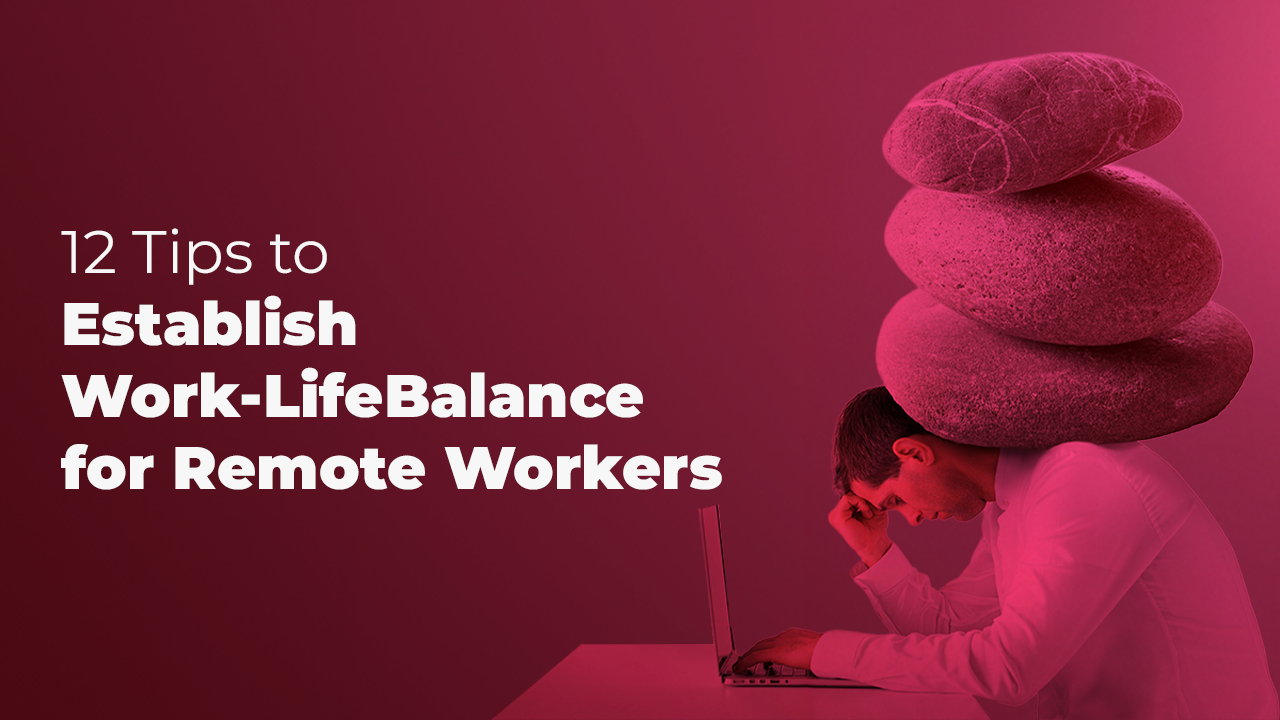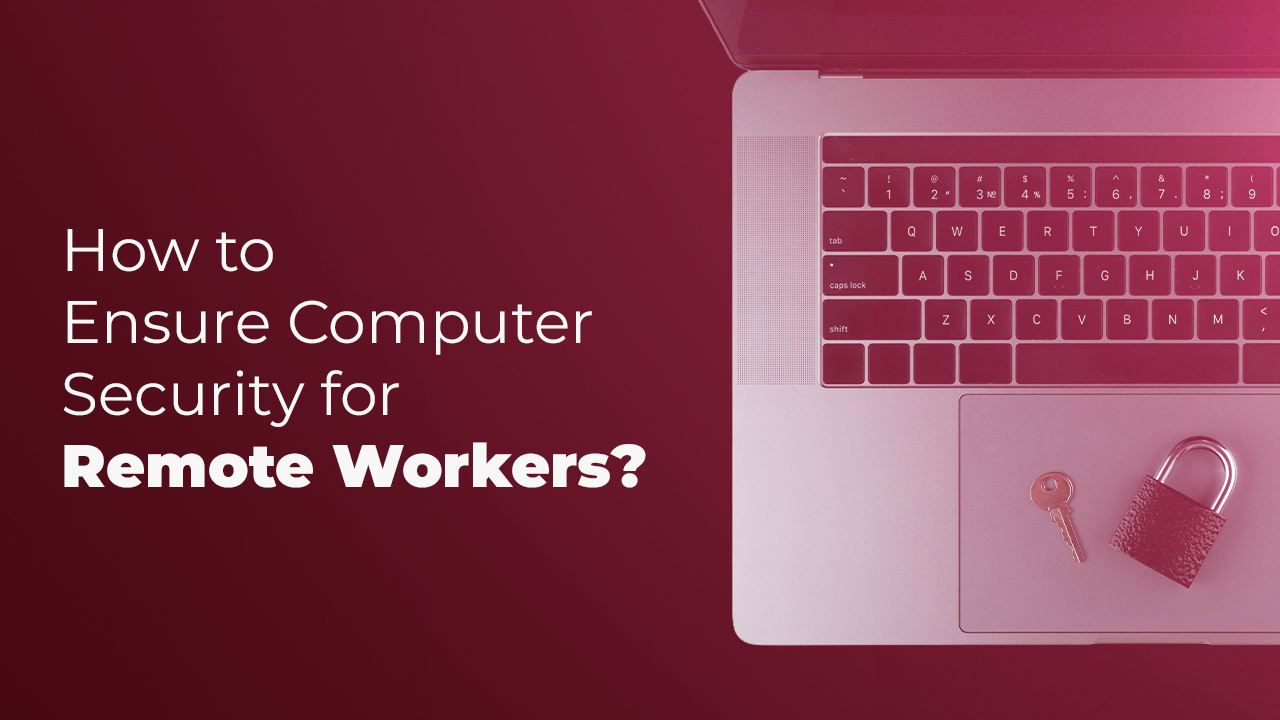About 42% of workers have a hybrid working schedule, according to a Gallup study . These workers work in the office one or two days a week and work the other days remotely. Employees visit the office to conduct and attend important meetings, access office materials and supplies, and work from home or anywhere else throughout the rest of the week.
As more and more people are working from home, it’s more important than ever to make sure your personal computer is secure. Whether you’re using your home computer for work or simply accessing work files remotely, it’s important to take steps to protect yourself from cyber threats. In this article, we will discuss how to secure your computer for remote workers.
Why is Computer Security Important for Remote Workers?
Computer security is crucial for remote workers as they are often more vulnerable to malware attacks and data breaches when working from personal devices outside of the company’s secure network. The increased risk of these security threats makes it essential for remote workers to take proactive measures to protect sensitive company information.
To address potential security threats, remote workers should ensure that their personal devices have up-to-date antivirus and anti-malware software installed. They should also use strong and unique passwords for all their accounts, enable two-factor authentication when possible, and avoid connecting to unsecured public Wi-Fi networks.
Additionally, remote workers should have a clear understanding of their company’s cybersecurity policy, which outlines best practices for maintaining security while working remotely. This policy should address issues such as the use of personal devices for work, secure file storage and sharing, and reporting security incidents promptly.
By following these steps and adhering to a clear cybersecurity policy, remote workers can help mitigate the increased risk of malware attacks and data breaches, ultimately safeguarding the company’s sensitive information.
Implementing Multi-Factor Authentication for Access to Company Network Resources
Implementing multi-factor authentication for access to company network resources involves several steps. Firstly, enable the multi-factor authentication feature in the company’s access control system. Next, users will need to provide their username and password as the first authentication factor. Then, they will need to provide an additional form of authentication such as a one-time password delivered through SMS, a hardware token, or other similar methods.
The benefit of multi-factor authentication, also known as two-factor authentication, is that it significantly enhances security by adding an extra layer of protection. It helps to prevent unauthorized access even if a hacker manages to obtain a user’s password. Furthermore, biometrics such as fingerprint scans or facial recognition can be used as an additional authentication factor, providing even more secure access control for company resources.
With the increasing trend of remote work, it’s crucial for companies to implement strong security measures like multi-factor authentication to protect sensitive data and prevent unauthorized access to their network resources. By incorporating biometric authentication, companies can further strengthen their security and provide a seamless and secure access control experience for their employees.
Utilizing Password Managers to Create Strong Passwords and Store Them Securely
Password managers are essential tools for creating and securely storing strong passwords for your organization’s data. These tools generate and manage complex, unique passwords consisting of mixed capital letters, numbers, and special characters, ensuring a high level of security.
To utilize a password manager effectively, start by setting up password creation parameters that align with best practices for password strength. This includes using a combination of uppercase and lowercase letters, numbers, and special characters and avoiding easily guessable information such as birthdays or common words.
Additionally, password managers offer the benefit of regularly reminding users to update their passwords, further enhancing security. This feature is critical as it ensures that passwords are changed regularly, decreasing the risk of unauthorized access to sensitive information.
By using a password manager to create and store strong, unique passwords, organizations can significantly improve their data security. With the ability to securely store a large number of complex passwords, password managers provide a convenient and safe solution for protecting sensitive information.
Setting up a Virtual Private Network (VPN)
To set up a Virtual Private Network (VPN) for remote access with increased security, there are two main options to consider: IPsec and SSL VPNs. First, choose the type of VPN that best aligns with your organization’s security policies.
For IPsec VPNs, the process involves configuring the VPN server on your network and on the remote device. This includes setting up the necessary encryption and authentication protocols to secure the connection. For SSL VPNs, a secure web portal is typically used to provide remote access, with the connection secured using SSL/TLS protocols.
Regardless of the chosen VPN type, it is important to ensure that all remote devices comply with your organization’s security policies. This includes verifying that the devices have up-to-date antivirus software, firewalls, and encryption protocols, as well as enforcing strong authentication methods for accessing the VPN.
Once the VPN is set up and remote devices are compliant with security policies, all remote connections should be directed through the VPN for secure access to the organization’s network and resources. By implementing these measures, organizations can significantly increase the security of their remote access while using a VPN.
Installing Antivirus Software on All Devices
Antivirus software is crucial for ensuring the safety and security of your devices. It provides essential protection from malware, which can pose significant threats to your personal and professional information. According to recent statistics, there are over 350,000 new malware threats detected every day, highlighting the growing need for robust protection measures.
Installing antivirus software on all your devices, including computers, smartphones, and tablets, helps to defend against these constantly evolving threats. It scans and detects malicious programs, prevents them from infiltrating your systems, and removes any existing infections. Additionally, having a firewall in place adds an extra layer of security by monitoring and controlling incoming and outgoing network traffic.
By utilizing antivirus software and a firewall, you can safeguard your data, privacy, and overall digital well-being. It’s essential to prioritize security measures to prevent potential cyber attacks and keep your devices operating smoothly. As technology continues to advance, ensuring comprehensive malware protection is increasingly vital in today’s digital landscape.
Securing Your Home Network with Firewall Protection
Securing your home network with firewall protection is essential to keep your personal data and devices safe from cyber threats. First, ensure that all your devices, including computers, smartphones, and smart home devices, have a strong PIN, passcode, or biometric access to prevent unauthorized access. This adds an extra layer of security to your network.
Additionally, keeping your software updated is crucial in protecting your devices from vulnerabilities that hackers can exploit. Set your devices to automatically update their software to ensure that you have the latest security patches.
For comprehensive security, consider implementing F-Secure Total, a robust security solution that offers protection against viruses, malware, and other online threats. F-Secure Total also includes features like VPN for secure online browsing and parental controls for added peace of mind.
According to a report by the Federal Bureau of Investigation, there were over 791,790 reported cases of cybercrimes in 2020, illustrating the growing need for strong home network security measures. By following these steps and using F-Secure Total, you can effectively secure your home network and keep your devices and personal data safe from cyber threats.
Conclusion
In conclusion, updating technology policies and educating employees on remote work security measures are crucial in maintaining a secure work environment. Providing employees with the necessary tools and resources ensures they have the means to work safely from any location. Proactively speaking with in-house IT managers, internet providers, and software customer success managers allows for an exchange of knowledge on the latest security solutions. By collaborating with these experts, businesses can stay ahead of potential security threats and implement effective measures to protect their data and systems. It is essential to prioritize technology policy updates, employee education, proactive communication, and collaboration with IT managers to ensure the security and success of remote work.








